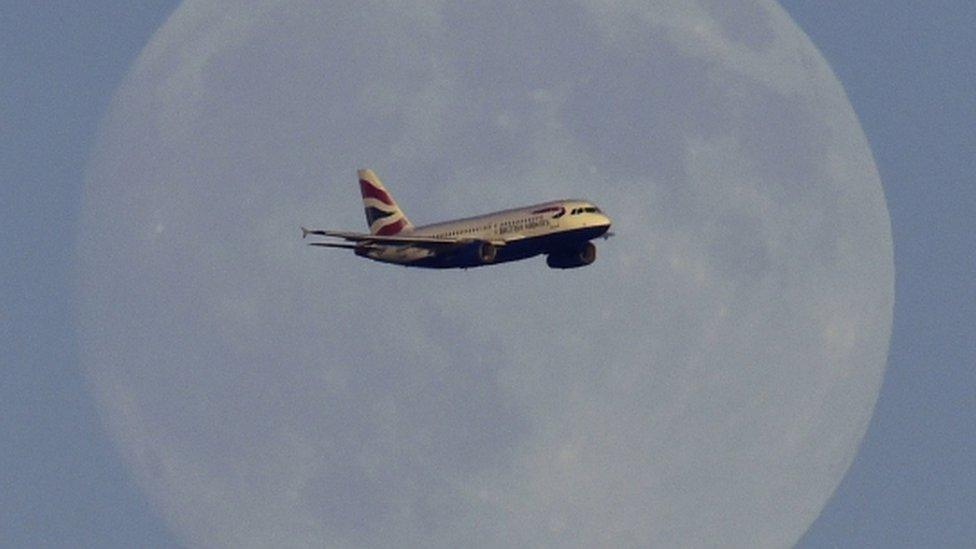Cutting air tax: buckle up
- Published
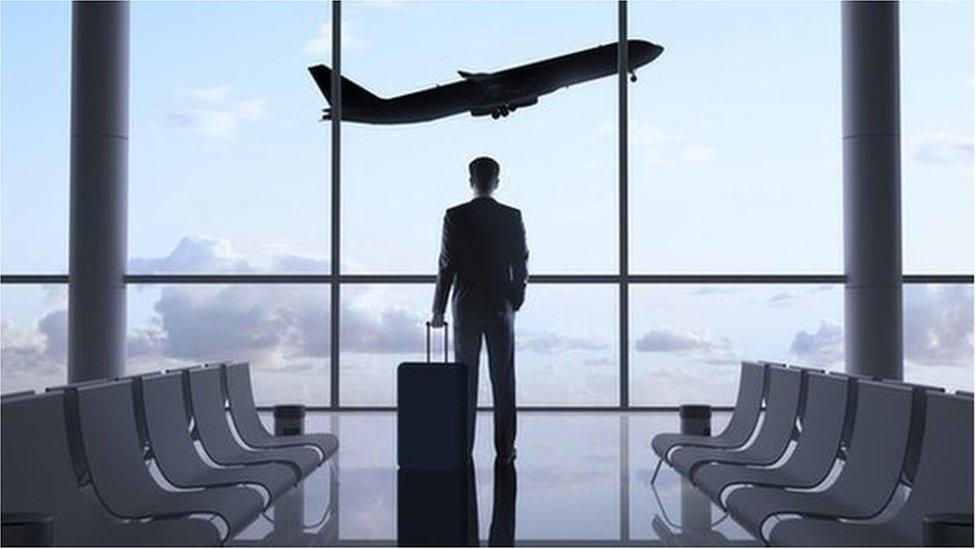
Scottish government plans to cut Air Passenger Duty have hit mid-flight turbulence.
Finance secretary Derek Mackay has been told to re-think his navigation before he can land the legislation safely.
Or to be more accurate, he's been told by MSPs - most prominent among them the SNP convener of the finance committee, Bruce Crawford - that he needs to offer some evidence, economic and environmental, of what such a cut might do.
One of the reasons that there is disquiet is that ministers want MSPs to pass a law on the principles of how a change in APD could be delivered but without setting out the extent of the cut.
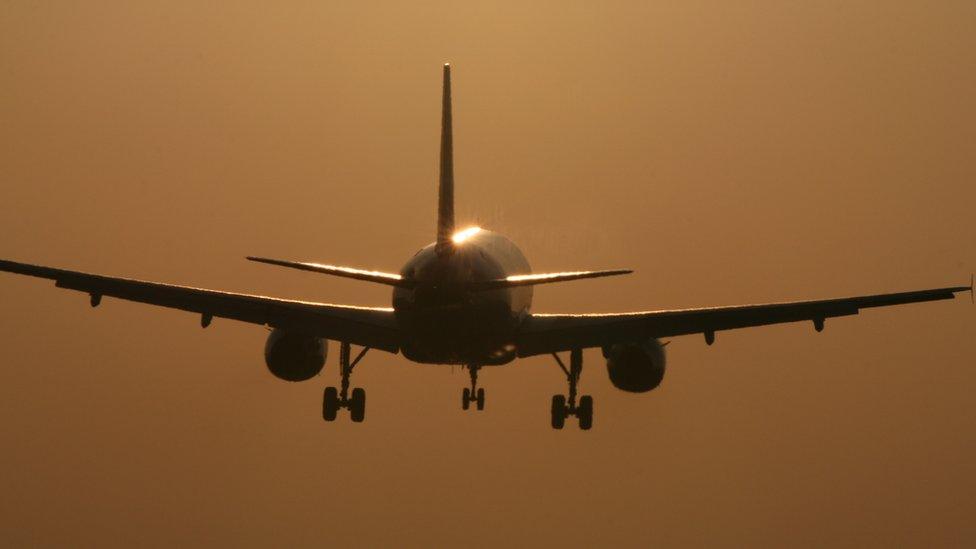
Nor is there a worked-out plan for any change in the banding structure (standard and non-standard class bands, and either below or above 2,000 miles) or of the exemptions. These are to follow with subsequent legislation.
And these are difficult political calculations because of the precarious nature of a minority government.
The budget deal done with Green MSPs for 2017-18 would be a lot more difficult in 2018-19 if Derek Mackay wants to start cutting Air Passenger Duty (APD). That is the first point at which he can do so.
Greens, as a general rule, don't much like measures that encourage carbon-emitting aviation. So it looks more likely that Tories would be Mr Mackay's source of votes, or abstentions, to get the next budget passed.
So what about that evidence? Others have tried to model Air Passenger Duty. And it's complicated.
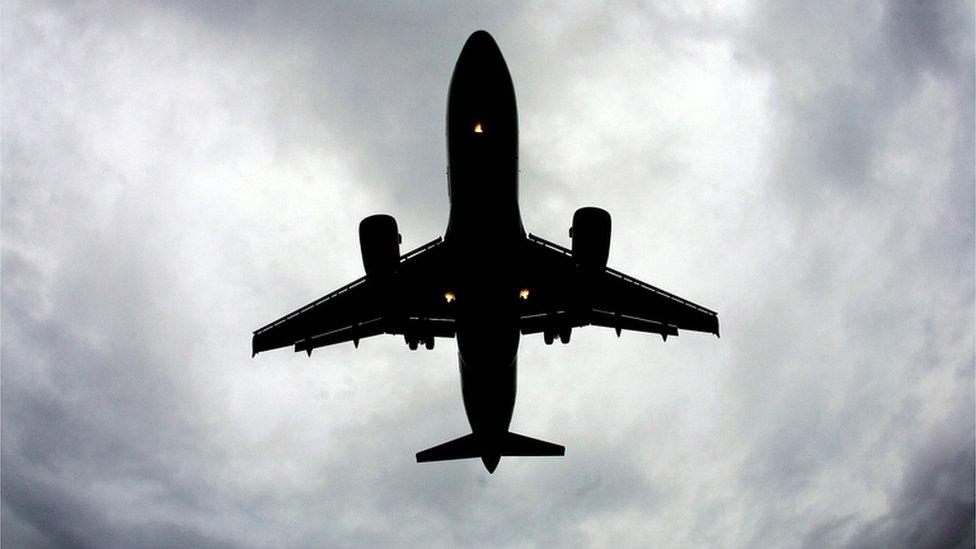
Air passenger duty is charged on all flights from UK airports
Here are some of the questions, issues and arguments:
If Air Passenger Duty is cut, would it a) cut total revenues or b) stimulate economic growth. And which would be the bigger effect?
Put simply, we don't know.
It depends on the modelling. A consultants' report for Edinburgh Airport produced a benefit of 3,800 jobs in Scotland, and £200m added value to the economy each year by 2020.
Others suggest the benefit would accrue to the airlines and airports, which would pocket it in higher profits and only pay a small share in corporation tax.
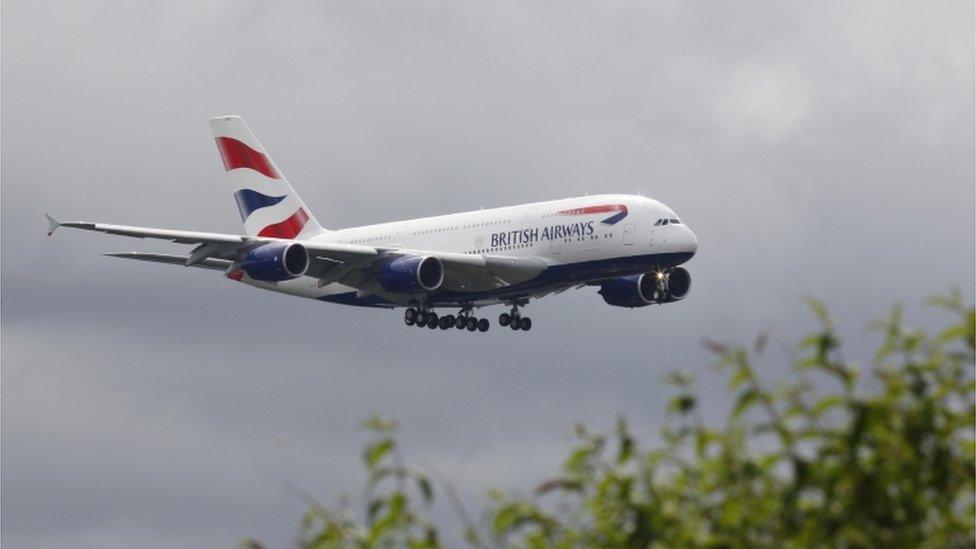
2. If APD is cut, what effects would it have on travelling?
Would it bring in more inbound visitors, spending their money on Scottish tourist attractions and doing business deals?
Or would it boost outbound tourism, substituting staycations with holiday-makers taking their spending power abroad?
Put simply, again, we don't know.
One aero-sceptical report into this, by the Common Weal think tank, suggests inbound tourism is by higher-end visitors whose plans are not primarily shaped by price, so the cut wouldn't boost their numbers that much.
Meanwhile, it suggests outbound tourism is more strongly linked to price, so the cut would have the more dynamic upward effect on Scots flying elsewhere?
And it argues that about £50m of APD is paid for business tickets. These are journeys that will still be made with or without the tax, so cutting it brings no benefit and a big cut in revenue.
That is to ignore the impact on company finances of lower business travel expenses. That means money freed up for other expenses, more business travel, a higher wage bill, investment or more in shareholder dividend.
3. If APD is cut in Scotland, what might it do to take aviation business from the rest of the UK?
Newcastle Airport thinks it would have a horrible impact.
A UK government study agrees but it suggests that would only be the initial response, also taking business from Manchester, and putting up passenger numbers in Glasgow and Edinburgh by 5% to 10%.
Phase two would be a rise in Scots using their cheapened flights to connect to longer-haul flights out of London airports.
And phase three is when the benefit that results from those London airports getting more UK business.
That would make them more competitive, the story goes, and draw passengers out of other English airports.
Using this model, the initial boom for Glasgow (twice that of Edinburgh) would fall back, and Birmingham would be the biggest loser.
The UK government has consulted on what it could do to mitigate the impact of a Scottish APD cut.
A differentiated tax to encourage a shift of air travel from the big London hubs to regional airports, for instance.
It has concluded that it's not going to do anything for now - not while its mind is focused on Brexit.
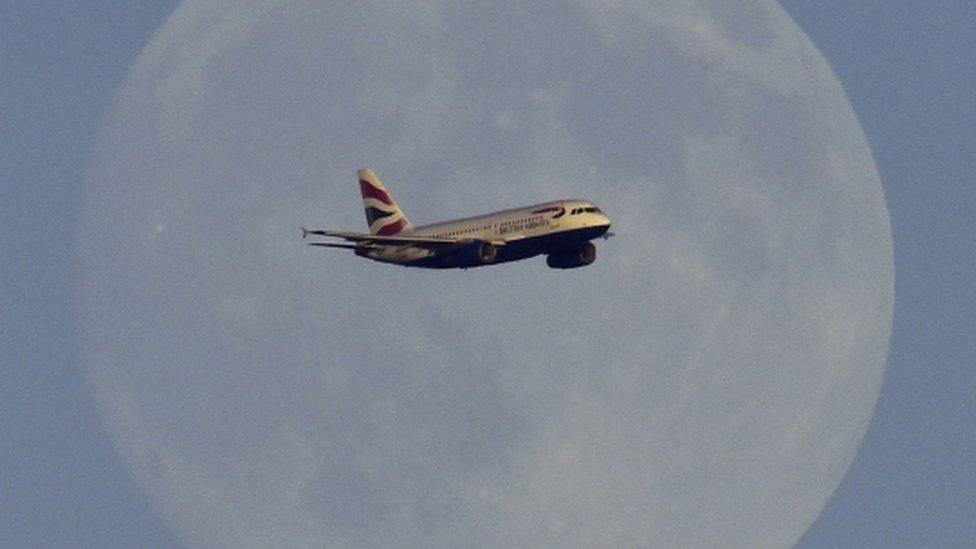
4. If APD is cut, what impact could it have on the environment?
The aviation industry says the increased passenger numbers would, over time, be offset by improvements in airliner fuel efficiency.
It cites the recent improvement in the efficiency of Europe's airlines, as they have taken delivery of new planes with more efficient engines.
That gain may not be sustained. Airlines can't keep on ordering brand new planes. And advances in fuel efficiency, while impressive, are unpredictably bumpy.
Either way, it's not clear that APD has succeeded in its initial purpose, back in 1994, of being an environmental tax.
Academic analysis has found that, even at one of the highest tax levels in the world, it is too low to dissuade many people from travelling.
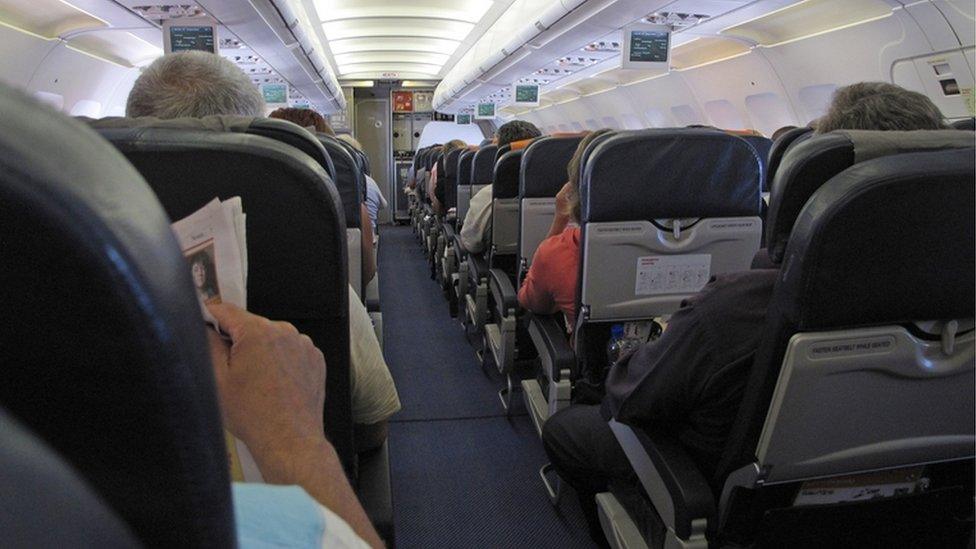
Cutting APD would make flights cheaper for Scottish holidaymakers
5. Would a cut in APD be of disproportionate benefit to the well-off?
This is an argument Scottish Labour is using against the plan.
The opposition party goes on to argue that, with tight finances, this should not be a priority for tax cutting, as it would mean a cut in revenue for public services.
It cites evidence that most flights are made by people in higher-earning households.
As with much of this, the evidence is a bit sketchy. It suggests that the share of total household income spent on air travel is quite similar across the earnings spectrum.
The last time the Civil Aviation Authority surveyed Scottish airport passengers on this subject, which was in 2013, it found Glasgow and Edinburgh had a slightly stronger bias towards the AB and C1 social classes as a share of total passenger numbers than other UK airports.
Some 30% of their passengers were from social classes C2, D and E - those typically with lower income.
The London airports had a lower proportion, while East Midlands, Birmingham and Manchester were higher.
Aberdeen Airport was an outlier on both business and leisure travel, shaped by its internationally mobile energy workforce.
The industry claims its evidence is compelling that the tax revenue cut from lower APD would be offset by higher tax revenue from other taxes, resulting from faster growth.
If true, it would mean that people who never fly could have better public services because people who do fly are saving money on APD and spending that money elsewhere. That's arguable.
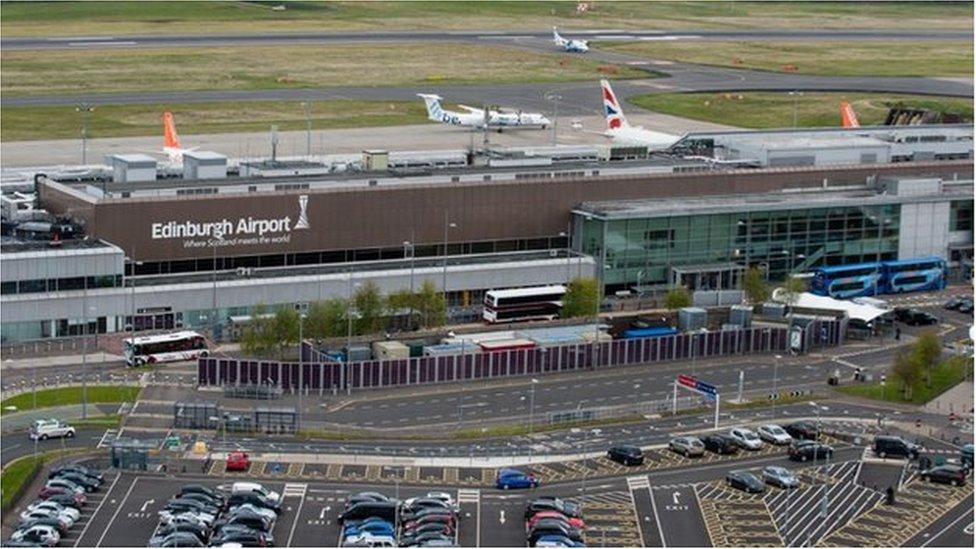
The tax plans have been backed by groups including airport bosses
But hang on: aren't Scotland's airports telling us that they've never had it so good?
Well, yes they are. Record growth for Edinburgh and Glasgow. Growth is particularly strong in international travel. Not so much for Aberdeen, which is suffering from the oil and gas downturn. And Prestwick is a special loss-making case.
With household spending tight, this is a sign that low fares are drawing in more passengers, and the weak pound seems to be attracting more foreign visitors.
It's also a credit to the competition authority which insisted that Edinburgh and Glasgow should be forced to split their ownership, and to compete.
They are doing well by going out to win more business, with new routes. And such is the congestion at Heathrow, it is easier to attract long-haul routes into North America, the Persian Gulf and, they hope eventually, linking with Asia.
So clearly, the case for a tax cut is not to provide support for an industry in difficulties. It argues - as you'll probably have guessed already - that while business is growing healthily, it could grow lots more with lower tax and therefore lower ticket prices.
Those aero-sceptics suggest that whatever impact there might be from cutting ticket prices, any tax change is being overwhelmed by the impact of Brexit and the lower exchange value of the pound.
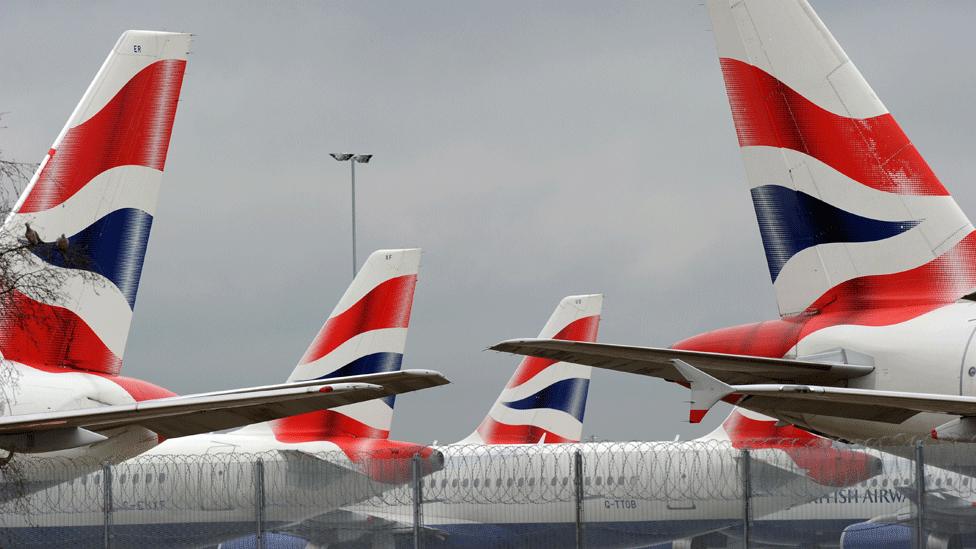
What other options might there be for taxing aviation?
There are tight constraints, due to international treaty obligations going back decades, which ban tax on fuel for international flights.
One plan is for the plane to be taxed, rather than the passenger. This would be an incentive to ensure planes are fully laden.
You could further adjust it to penalise the least fuel-efficient aircraft with higher taxes. That's when it gets more complicated. APD has the attraction of being simple to collect.
To tackle the question of social injustice, the New Economics Foundation has suggested a quota system.
Everyone could be entitled to one outbound flight every year without tax.
But frequent flyers - the higher earners, that is - would have a rising level of APD the more times they take off.
- Published14 March 2016
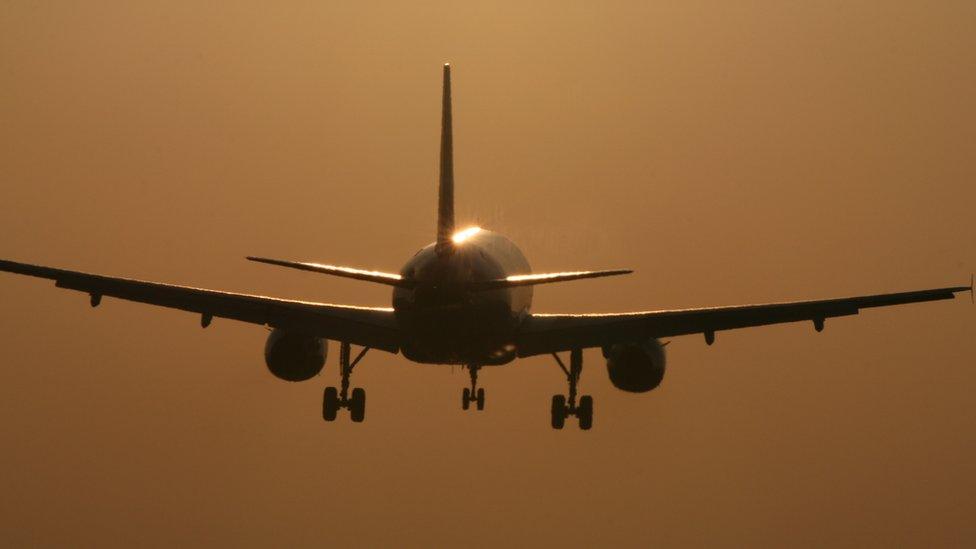
- Published13 February 2017

- Published1 February 2017
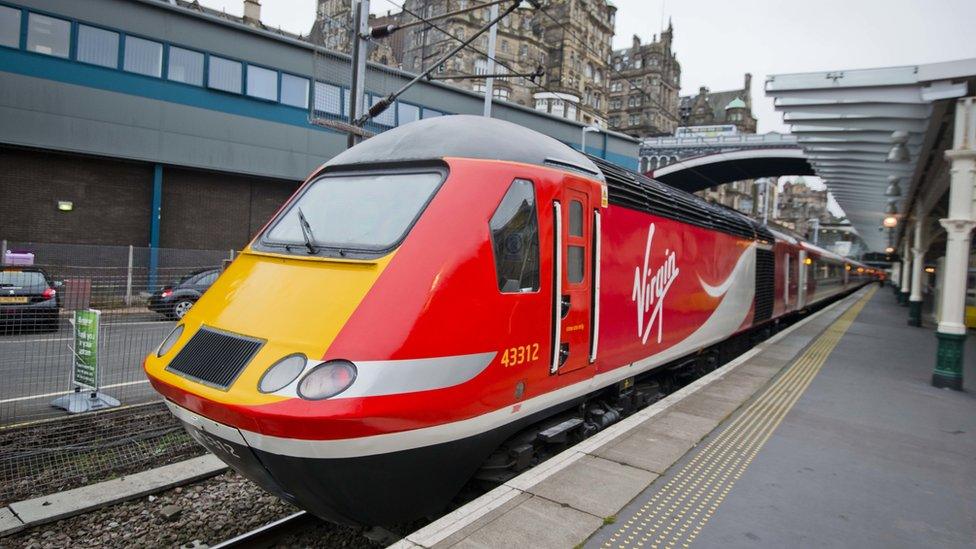
- Published9 December 2016
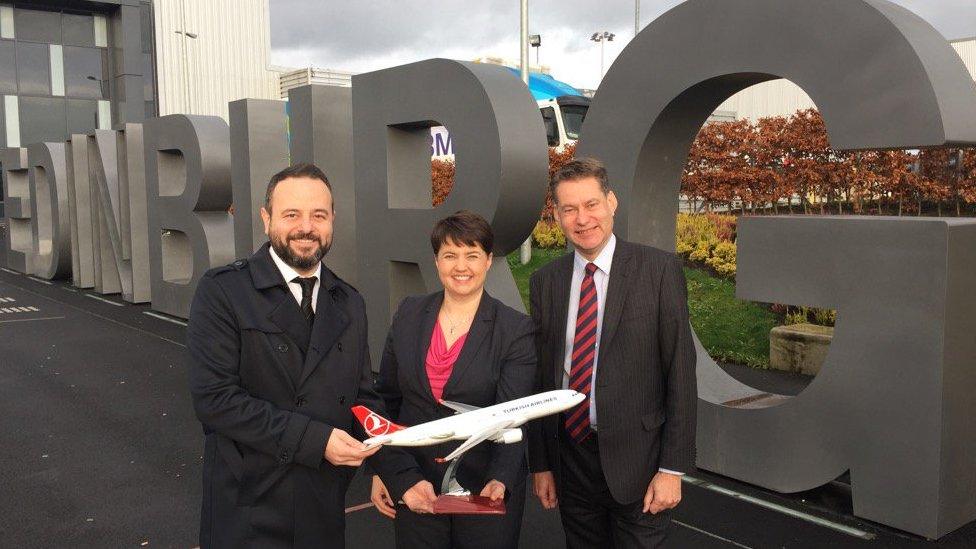
- Published29 July 2016
